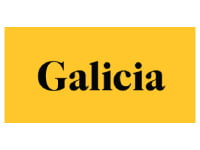

General counsel, head of government affairs Mexico, global compliance coordinator and data privacy officer Latam | DHL Supply Chain



Jesús Alejandro Moreno Rogel
General counsel, head of government affairs Mexico, global compliance coordinator and data privacy officer Latam | DHL Supply Chain
Can you discuss your or your company’s efforts relating to renewability, sustainability, or other environmentally-friendly activities?
At DHL Supply Chain Mexico, we have the goal to achieve carbon neutrality in all of our warehouses. This means that we have implemented different actions thar are focused on energy efficiency: (i) Carbon neutral designs for new buildings. This involves incorporating energy-efficient technologies such as LED lighting and high-frequency chargers for MHE (Material Handling Equipment) forklifts. LED lighting is known for its energy efficiency and longer lifespan, while high-frequency chargers minimise energy consumption during the charging process; (ii) sustainable warehouse construction – DHL strives to construct sustainable warehouses and buildings. These efforts have been recognised through certifications such as LEED (Leadership in Energy and Environmental Design) and EDGE (Excellence in Design for Greater Efficiencies). LEED certification signifies adherence to rigorous sustainability standards, while EDGE certification recognises buildings that optimise resource use and reduce environmental impact; (iii) Led lighting implementation – DHL has made significant progress in implementing LED lighting in its warehouses. In just a few years, over 65% of DHL warehouses have been equipped with energy-efficient LED lighting. LED lighting not only reduces energy consumption but also offers improved lighting quality and longer operational life.
Additionally, we committed to the use of sustainable technologies and fuels through several initiatives such as: Solar energy contracts – DHL has signed contracts with customers to support their operations in warehouses by utilizing solar energy production; significant growth in solar production capacity – DHL has experienced remarkable growth in solar production capacity. The area covered by solar panels has increased from 8,000m2 in 2021 to over 60,000m2 in 2023; renewable energy contribution – as a result of the increased solar production capacity, currently, approximately 7% of the electrical energy used in DHL’s warehouses is derived from renewable sources.
We’ve also worked on sustainable packaging. DHL adopts reduction, reuse, and recycling practices to minimise waste generation and maximize efficiency in packaging. They actively promote the use of eco-friendly packaging materials. We have also signed contracts with customers for reverse logistics, ensuring proper handling of hazardous products and special handling wastes like lithium or nickel batteries. This prevents soil pollution and enables the recycling of batteries, extracting valuable metals for reuse. DHL practices align with the principles of the circular economy, focusing on reducing waste, reusing materials, and recycling resources. By extracting valuable metals from batteries, they contribute to resource circularity and minimise the need for new raw materials.
We actively promote sustainable practices even when it comes to transport. DHL utilises aerodynamic trailer designs and efficient network planning to optimise fuel efficiency and reduce emissions in transportation operations. These measures help minimise the environmental impact associated with transportation activities. DHL has taken advanced steps in adopting hybrid and electric vehicles (EVs) for transportation services. Currently we have more than 50 electric vehicles on the road. To support the operation of electric vehicles, DHL has established five Electric Charging Stations. These stations provide the necessary infrastructure for charging electric vehicles, facilitating their usage and expansion of the electric fleet.
Still, we are not going to stop here. We are currently exploring: (i) Water treatment for reuse: DHL Group aims to minimise water waste by implementing efficient water treatment systems that allow for its reuse. By treating and reusing water within their operations, DHL Group reduces the strain on freshwater resources and promotes water conservation; (ii) drinking water production – we are currently exploring systems that can generate drinking water, such as atmospheric water generation. This technology extracts water from the air, providing a potential solution to areas with limited access to clean drinking water.
Why are in-house lawyers well-placed to drive change in their organisations?
In-house lawyers are well-positioned to drive change in organisations due to their legal expertise that enables them to identify risks and propose innovative solutions. Their business acumen allows them to align legal initiative with the overall business strategy. In-house lawyers have the responsibility for risk management, ensuring compliance and mitigating legal risks. They have the ability to influence having direct access to top management in involvement in decision-making.
It can be challenging to measure a company’s track record in environmentally friendly behavior. What, in your opinion, has mostly been missed in discussions about how green a company is?
In discussions about a company’s environmental sustainability, there are often key aspects that are overlooked. Here’s a summary of what is commonly missed: (i) Transparency and accountability – companies should provide transparent and accessible information about their sustainability practices, including emissions data, environmental goals, and progress reports. Independent verification and certification can ensure the credibility of their claims; (ii) scope 3 emissions – while discussions often focus on direct emissions (Scope 1) and indirect emissions from purchased electricity (Scope 2), Scope 3 emissions are frequently neglected. These include emissions from the supply chain, transportation, and product use, which can constitute a significant portion of a company’s carbon footprint; (iii) circular economy practices – i n addition to reducing carbon emissions, the adoption of circular economy principles is often overlooked. Companies should prioritise minimising waste generation, promoting product reuse and recycling, and designing products with end-of-life considerations in mind. Considering these aspects would provide a more comprehensive assessment of a company’s environmental sustainability efforts. By emphasising transparency, addressing Scope 3 emissions, and promoting circular economy practices, discussions about a company’s green behaviour can be more accurate and insightful.